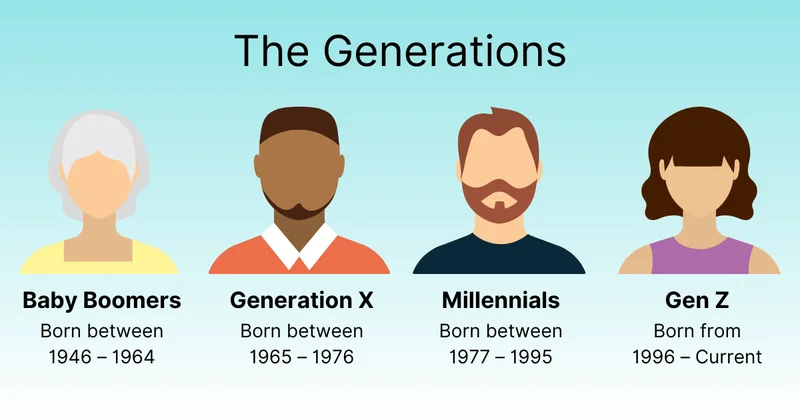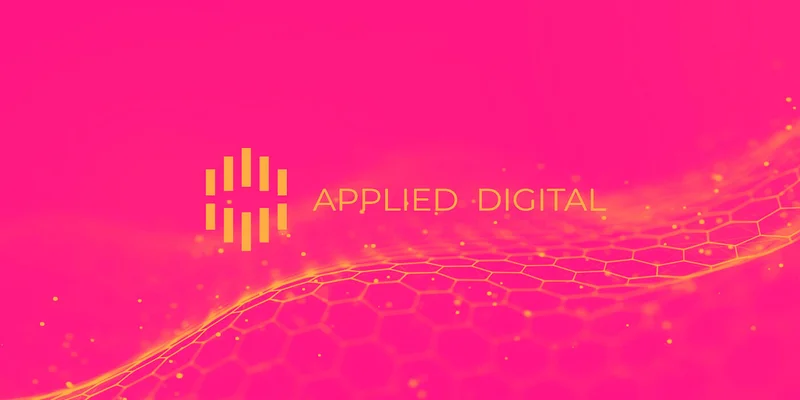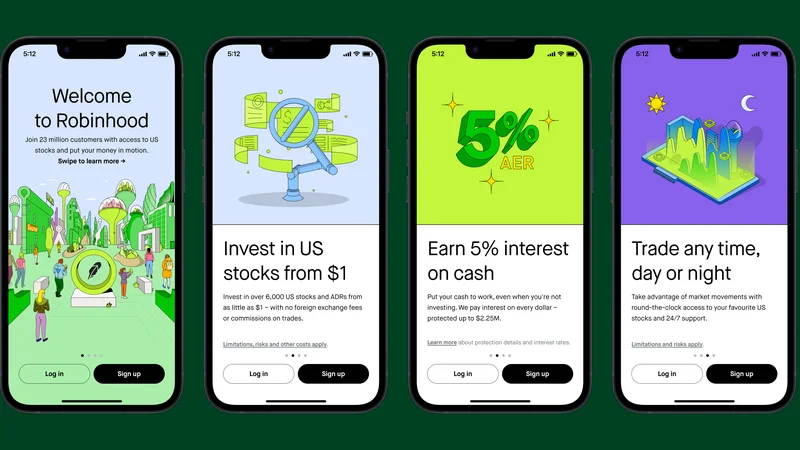Gen Z Years: The Definitive Year Range and What Truly Defines the Generation
Beyond the ‘Gen Z Split’: Why a Generation’s Pain is Fueling a Global Upgrade
I keep reading the headlines, and I get it. The narrative being spun about Generation Z—the cohort of young people born roughly between 1997 and 2012—is one of fracture. On one side, you have terrifying, heartbreaking statistics about a suicide crisis claiming more young lives, particularly among Black and Hispanic men, than ever before. On the other, you see a generation labeled as emotionally overwhelmed, disengaged, and cautious. The story is simple: they’re breaking down.
But I have to tell you, I think that’s a profound misreading of the data. It’s like looking at the heat and pressure inside a star and only seeing a destructive explosion, completely missing the fact that it’s the very engine of creation. What we’re witnessing isn’t a generation collapsing. We are witnessing the painful, messy, and absolutely necessary process of a global immune system kicking into gear.
The pain is the input. And what we’re seeing bubble up from Madagascar to Morocco—as detailed in reports like From Madagascar to Morocco: Gen Z protests shake Africa—from university campuses to the halls of government, is the output: a worldwide, digitally native, coordinated response to a world that feels, to them, fundamentally broken. This isn’t a split. It’s a symptom and a cure, happening all at once.
The Network Comes Online
Look at what’s happening on the ground. In Madagascar, a protest over water and electricity shortages, organized organically on Facebook, forces the government to dissolve. In Morocco, young people coordinate on TikTok and Discord—a platform for gamers, for crying out loud—to stage the biggest anti-government rallies in years. They’re not just angry about corruption; they’re furious about the government spending money on stadiums for the World Cup while their education and healthcare systems crumble.
This isn’t your parent’s protest movement. This is something new. It’s decentralized, leaderless, and viral. They share symbols across continents—a cartoon skull from a Japanese anime series, One Piece, becomes a unifying icon for young people fighting a repressive government in Madagascar, just as it was for those who toppled Nepal’s government a month earlier. This is a generation that has spent its entire life connected, and it thinks like a network—an idea in one node can spark a revolution in another in the blink of an eye. The speed of this is just staggering—it means the gap between a shared feeling of injustice and coordinated global action is closing faster than our institutions can even comprehend.
Are these the actions of a disengaged, emotionally overwhelmed generation? Or are they the actions of a generation that sees systemic failure not as a political issue, but as a bug in the code of society itself—a bug that needs to be fixed, immediately? What if we're seeing the first generation to treat societal corruption with the same urgency as a critical security flaw in an operating system?

When I see these protests, I don't see chaos. I see a planetary-scale debugging process in real time. The rising despair, the economic anxiety, the mental health crisis—that’s the error log. The protests are the patch.
The Source Code of a New System
So what’s driving this? What’s the underlying logic? For years, I’ve heard people wonder what the core values of `Generation Z` truly are. A business lecturer named Jeff LeBlanc, who has taught `Gen Z` students for nearly a decade, stumbled upon the answer in a classroom exercise he detailed in an essay, I’ve Taught Gen Z for Almost a Decade. I’m Split on the So-Called Gen Z ‘Split’, that I think is one of the most brilliant things I’ve read all year.
He runs a “Leadership Trait Auction.” Students get a fictional budget to bid on the qualities they value most in a leader. For years, the winners have been consistent: kindness, strong communication, and expertise. But LeBlanc noticed a shift. Early on, students just picked them. Now, they debate them. They ask, “What does kindness in leadership actually look like?” They question if it’s just “performative.” They’re not just accepting the values; they are stress-testing them for authenticity and practical application.
When I first read that, I honestly just sat back in my chair, speechless. This is the kind of breakthrough that reminds me why I got into this field in the first place. It connects everything. The reason they’re in the streets is the same reason they’re demanding kindness in the classroom: they’ve grown up watching adults fail to live up to the values they preach, and they are ruthlessly, relentlessly filtering out the hypocrisy.
This isn’t softness; it’s a demand for a more resilient, more functional system. Kindness, to them, isn’t an emotional bonus—it’s a feature of a well-designed organization. Empathy is a form of credibility. This is a generation that has crowdsourced its values, and it’s building a new social contract from the ground up. This is a paradigm shift in human organization, not unlike the one sparked by the printing press, which took information out of the hands of the few and gave it to the many. Social media and digital networks have done the same for social and political power.
Now, we have a profound responsibility here. We can’t just stand back and admire their energy while ignoring the immense pressure they’re under. The statistics on suicide and depression are not just numbers; they are a measure of the immense psychic weight of inheriting a world riddled with so many deep-seated problems. But to see that pain and conclude the generation itself is the problem is a catastrophic failure of imagination.
The Great Recalibration
Let’s be clear. The narrative of a “broken” or “split” `Gen Z` is an easy, almost comforting story for older generations because it absolves us of responsibility. But it’s wrong. The anxiety and the activism aren’t contradictory signals. They are the same signal. One is the raw, unprocessed pain of a system failing them. The other is the intelligent, adaptive, and incredibly hopeful response. We are not watching a generation fall apart. We are watching it recalibrate the meaning of strength, leadership, and community right before our eyes. And frankly, it’s about time.
-

Warren Buffett's OXY Stock Play: The Latest Drama, Buffett's Angle, and Why You Shouldn't Believe the Hype
Solet'sgetthisstraight.Occide...
-

The Great Up-Leveling: What's Happening Now and How We Step Up
Haveyoueverfeltlikeyou'redri...
-

The Future of Auto Parts: How to Find Any Part Instantly and What Comes Next
Walkintoany`autoparts`store—a...
-

Applied Digital (APLD) Stock: Analyzing the Surge, Analyst Targets, and Its Real Valuation
AppliedDigital'sParabolicRise:...
-

Analyzing Robinhood: What the New Gold Card Means for its 2025 Stock Price
Robinhood's$123BillionBet:IsT...
- Search
- Recently Published
-
- DeFi Token Performance & Investor Trends Post-October Crash: what they won't tell you about investors and the bleak 2025 ahead
- Render: What it *really* is, the tech-bro hype, and that token's dubious 'value'
- APLD Stock: What's *Actually* Fueling This "Big Move"?
- Avici: The Real Meaning, Those Songs, and the 'Hell' We Ignore
- Uber Ride Demand: Cost Analysis vs. Thanksgiving Deals
- Stock Market Rollercoaster: AI Fears vs. Rate Hike Panic
- Bitcoin: The Price, The Spin, & My Take
- Asia: Its Regions, Countries, & Why Your Mental Map is Wrong
- Retirement Age: A Paradigm Shift for Your Future
- Starknet: What it is, its tokenomics, and current valuation
- Tag list
-
- Blockchain (11)
- Decentralization (5)
- Smart Contracts (4)
- Cryptocurrency (26)
- DeFi (5)
- Bitcoin (31)
- Trump (5)
- Ethereum (8)
- Pudgy Penguins (6)
- NFT (5)
- Solana (5)
- cryptocurrency (6)
- bitcoin (7)
- Plasma (5)
- Zcash (12)
- Aster (10)
- nbis stock (5)
- iren stock (5)
- crypto (7)
- ZKsync (5)
- irs stimulus checks 2025 (6)
- pi (6)
- hims stock (4)
- kimberly clark (5)
- uae (5)
